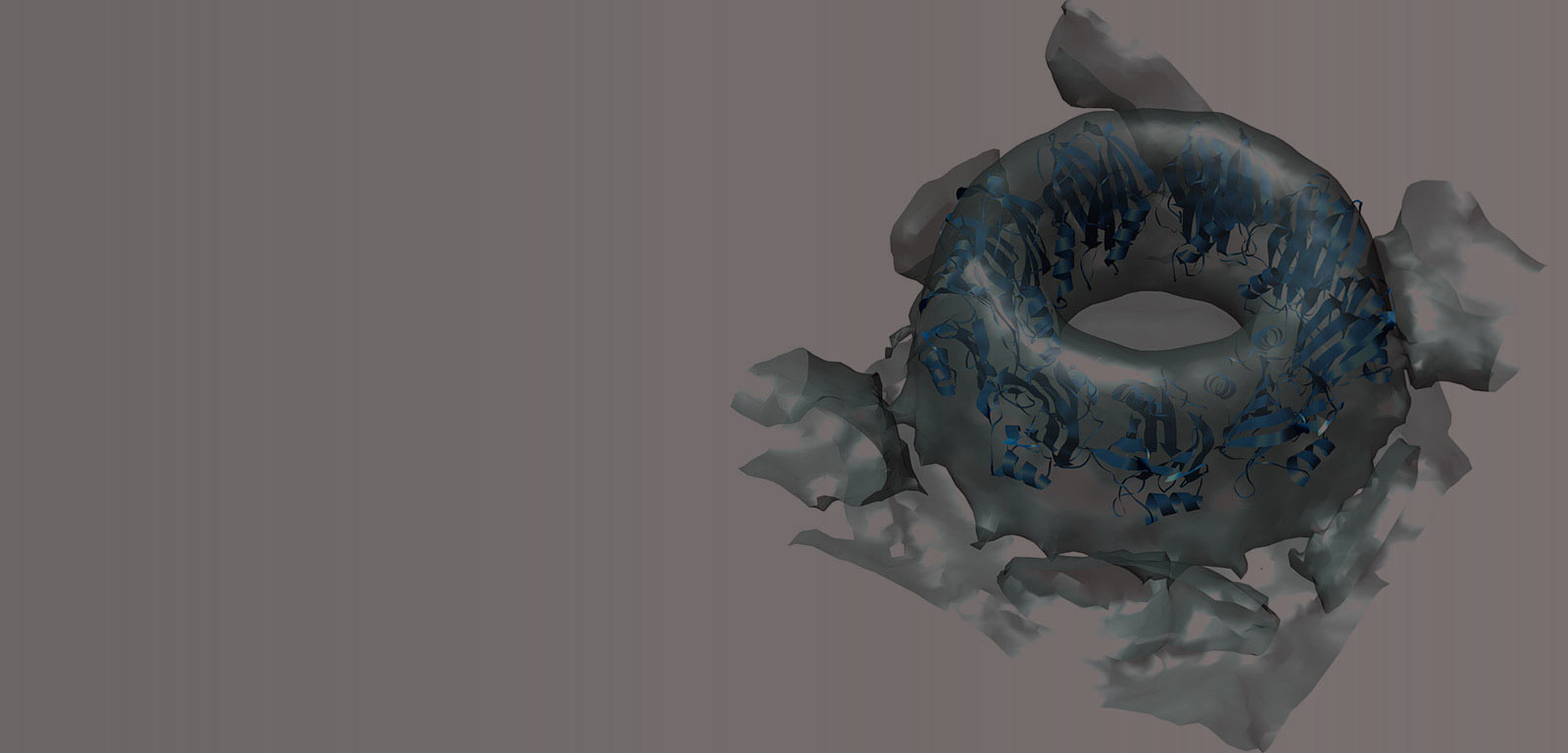Subject
Macromolecular Structure
General details of the subject
- Mode
- Face-to-face degree course
- Language
- English
Teaching staff
| Name | Institution | Category | Doctor | Teaching profile | Area | |
|---|---|---|---|---|---|---|
| FULLAONDO ELORDUI-ZAPATERIECHE, ASIER | University of the Basque Country | Profesorado Agregado | Doctor | Bilingual | Genetics | asier.fullaondo@ehu.eus |
| MORO PEREZ, FERNANDO | University of the Basque Country | Personal Doctor Investigador | Doctor | Not bilingual | Biochemistry and Molecular Biology | fernando.moro@ehu.eus |
Competencies
| Name | Weight |
|---|---|
| Conocimiento actualizado de las áreas más activas de la Biología Molecular y la Biomedicina. | 20.0 % |
| Experiencia de trabajo en un laboratorio de investigación en el área. | 20.0 % |
| Capacidad para comenzar el trabajo experimental conducente al doctorado. | 20.0 % |
| Capacidad para comprender y, a nivel básico, evaluar críticamente un artículo de investigación en las áreas objeto del Máster. | 20.0 % |
| Capacidad para iniciar una tesis doctoral. | 20.0 % |
Study types
| Type | Face-to-face hours | Non face-to-face hours | Total hours |
|---|---|---|---|
| Lecture-based | 50 | 75 | 125 |
Training activities
| Name | Hours | Percentage of classroom teaching |
|---|---|---|
| Acquiring basic instrumental skills | 25.0 | 8 % |
| Expositive classes | 50.0 | 24 % |
| Text analysis | 50.0 | 8 % |
Assessment systems
| Name | Minimum weighting | Maximum weighting |
|---|---|---|
| Continuous evaluation | 0.0 % | 30.0 % |
| Multiple-choice examination | 0.0 % | 30.0 % |
| OTROS | 0.0 % | 10.0 % |
| Oral examination | 0.0 % | 30.0 % |
Learning outcomes of the subject
The student will acquire a critical scientific approach, capacity for experimental design and scientific communication in the field of macromolecule structure.The student will acquire practical skills in the appropriate techniques to address problems of a basic or applied nature in the determination and analysis of the structure of macromolecules.
The student will acquire the knowledge, skills and abilities necessary to carry out an innovative research project in the field of macromolecule structure.
The student will know how to apply advanced knowledge and techniques in Biochemistry, Structural Biology and Molecular Biology to the study and understanding of the structure and function of macromolecules.
The student will acquire self-learning skills that will allow continuous updating in methodological and conceptual advances related to the structure of macromolecules.
Ordinary call: orientations and renunciation
Attendance is compulsory. Excused absences may be made up with the activity indicated by the person in charge of the session.The intervention of the student in the classes will be valued, the questions and comments made in each session will be valued. A high participation and attendance to 100% of the sessions allows to pass the course.
An unexcused attendance of less than 80% of the sessions will result in the failure of the course.
In the case of absence with a justified cause (more than 30%), an exam/test of the subject adjusted to the specific situation will be carried out.
The evaluation tests of the course will be adjusted to the characteristics of the group and will be made explicit at the beginning of the course.
Extraordinary call: orientations and renunciation
The extraordinary call will involve the realization of an exam/test of the subject that will consist of the development of a topic of the subject to choose between two chosen at random.Temary
Tema 1 INTRODUCCIÓN A LA ESTRUCTURA DE PROTEÍNASTema 2 ESTRUCTURA SECUNDARIA DE PROTEÍNAS
Tema 3 TÉCNICAS ESPECTROSCÓPICAS PARA ESTIMAR LA ESTRUCTURA SECUNDARIA DE PROTEÍNAS Y DETERMINAR MECANISMOS DE REACCIÓN
Tema 4 ESTRUCTURA TERCIARIA Y CUATERNARIA DE PROTEÍNAS
Tema 5 PROTEÍNAS DE MEMBRANA
Tema 6 DETERMINACIÓN DE LA ESTRUCTURA TERCIARIA DE PROTEÍNAS I: CRISTALOGRAFÍA Y DIFRACCIÓN DE RAYOS X
Tema 7 DETERMINACIÓN DE LA ESTRUCTURA TERCIARIA DE PROTEÍNAS II: MICROSCOPÍA ELECTRÓNICA
Tema 8 ESTABILIDAD TERMODINÁMICA DE PROTEÍNAS
Tema 9 PLEGAMIENTO DE PROTEÍNAS EN LA CÉLULA
Tema 10 PLEGAMIENTO DEFECTUOSO Y ENFERMEDADES
Tema 11 PREDICCION ESTRUCTURA DE PROTEINAS
Tema 12 MOTORES MOLECULARES
Tema 13 NANOBIOTECNOLOGÍA
Tema 14 ESTRUCTURA Y TOPOLOGÍAS DEL DNA
Tema 15 ESTRUCTURA SECUNDARIA Y TERCIARIA DE RNAS
Tema 16 RECONOCIMIENTO MACROMOLECULA-LIGANDO
Tema 17 INTERACCIONES MACROMOLECULARES
Tema 18 EVOLUCION MOLECULAR DE PROTEINAS
Tema 19 INGENIERIA DE PROTEINAS
Bibliography
Compulsory materials
For each individual subject included in the program the student will be provided by the instructors with additional teaching aids (i.e Power Point presentations and other specialized references as reviews or research articles)in the digital platform Moodle.Basic bibliography
1) Gómez-Moreno, C y Sancho, J (coordinadores) "ESTRUCTURA DE PROTEÍNAS". Ed. Ariel 20032) Creigthon, T. "PROTEINS. STRUCTURE AND MOLECULAR PROPERTIES" 2ª ed. Freeman. 1993
3) Branden, Tooze. "INTRODUCTION TO PROTEIN STRUCTURE" 2ª ed. Garland 1999
4) LESK, A. "AN INTRODUCTION TO PROTEIN ARCHITECTURE: THE STRUCTURAL BIOLOGY OF PROTEINS." OXFORD UNIVERSITY PRESS, 2001
5) Kyte "STRUCTURE IN PROTEIN CHEMISTRY", Garland 1995
6) Darby, Creigthon "PROTEIN STRUCTURE" IRL Press. Oxford University Press 1993
7) Rhodes, G "CRYSTALLOGRAPHY MADE CRYSTAL CLEAR". 2ª ed. Academic Press 2000
8) Sinden, "DNA STRUCTURE AND FUNCTION". Academic Press, 1994.
9) Blomfield, Crothers, Tinoco, "NUCLEIC ACIDS: STRUCTURE, PROPERTIES AND FUNCTION". University Science Books, 2000


